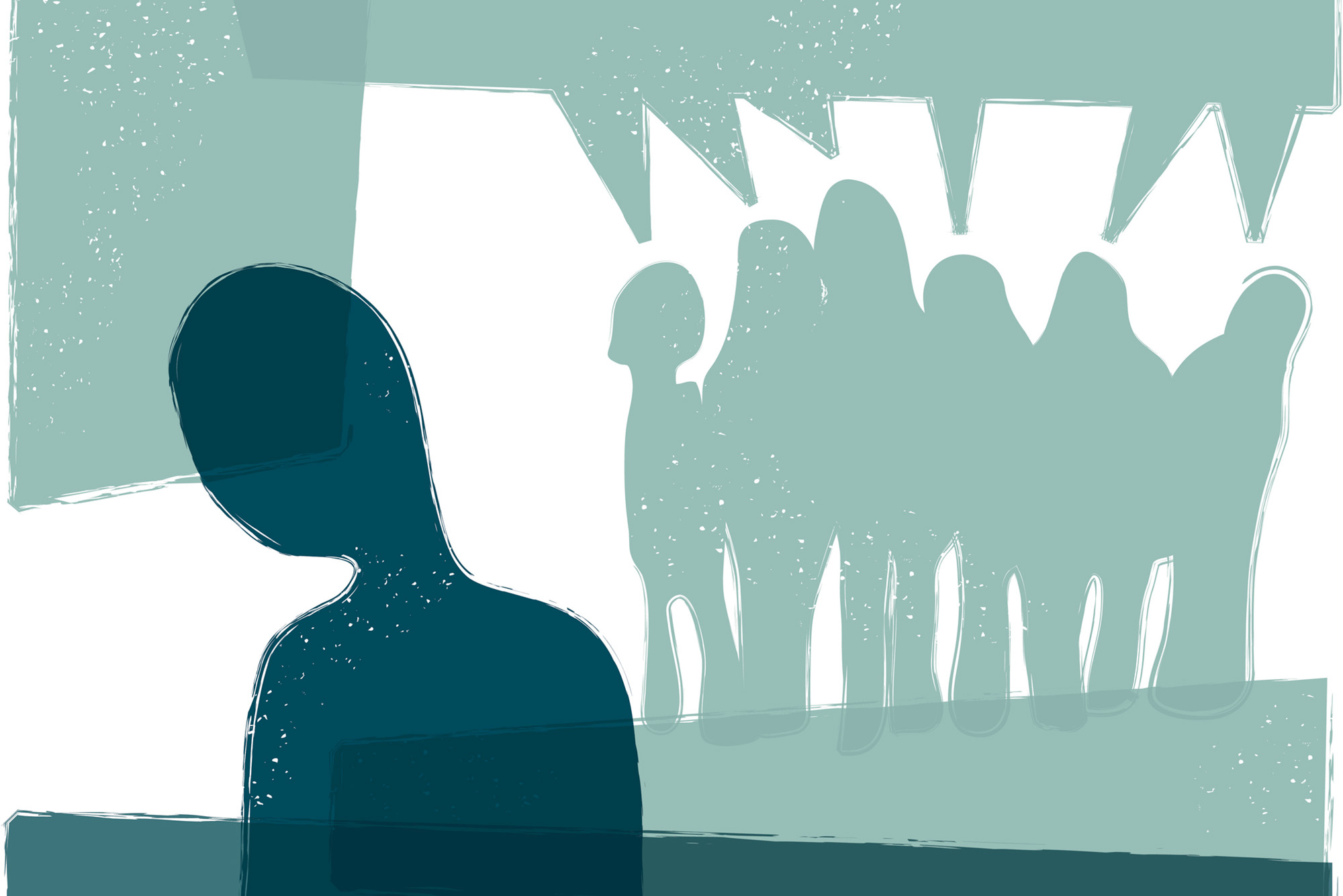“Everyday Discrimination” Linked to Increased Anxiety and Depression Across All Groups of Americans
“At some point, all of us experience unfair treatment due to our personal traits,” writes BU community health researcher Monica L. Wang. Photo via iStock/borisz
People who most frequently encounter everyday discrimination—those subtle snubs and slights of everyday life—are more likely to suffer from anxiety and depression. What’s more, that finding remains true no matter the person’s race, gender, age, education, income, weight, language, immigration status, or where they live.
These are the key takeaways from our recent study, published in JAMA Network Open.
Everyday discrimination refers to the routine ways people are treated unfairly because of characteristics such as skin color, perceived background, or general appearance.
Generally, it means disrespectful treatment: waiting longer than others for help at a store, having your ideas dismissed without consideration at work, or hearing rude comments about your identity.
Although marginalized groups endure everyday discrimination most often, our study indicates that this is a widespread issue affecting people of all races and backgrounds.
Although marginalized groups endure everyday discrimination most often, our study indicates that this is a widespread issue affecting people of all races and backgrounds.
I’m a professor who specializes in community health. My team and I analyzed data from the 2023 National Health Interview Survey, which included a weighted sample of nearly 30,000 US adults, adjusted to accurately reflect more than 258 million people—approximately 75 percent of the country.
Along with reporting frequency of everyday discrimination, participants completed clinical screenings for depression and anxiety.
The results were striking: nearly 56 percent of participants experienced at least occasional everyday discrimination, with 3.6 percent having “high levels,” meaning they faced discrimination most frequently—at least monthly and often weekly.
High levels were most prevalent among Black adults, at 8.6 percent. Multiracial respondents were next with 6.4 percent. Hispanics and white participants were at about 3 percent, Asians just over 2 percent.
Women and immigrants, people with disabilities, and those who are overweight, obese, or struggling with food insecurity also reported higher levels.
When compared with those reporting no discrimination, participants with high levels had five times the odds of screening positive for either depression or anxiety, and nearly nine times the odds of screening positive for both.
As discrimination increased, the increase in screening positive for depression, anxiety, or both, varied by race, with a more noticeable rise among groups that are often overlooked in these discussions—white, Asian, and multiracial adults.
This doesn’t mean discrimination is less harmful for Black, Hispanic/Latino, or other racial and ethnic groups. One possible reason for our study’s findings may be that groups that have long endured structural discrimination may have developed more ways over time to cope with it.
Why It Matters
At some point, all of us experience unfair treatment due to our personal traits. But this type of discrimination isn’t just unpleasant. Our study shows it has real consequences for health.
Along with depression and anxiety, discrimination creates chronic stress, leading to increased risk for hypertension, heart disease, impaired brain functioning, accelerated aging, and premature death.
For some, everyday discrimination may emerge at different times in life. This can happen to people as they get older or when they become ill.
But for others, it is a constant. This includes people living in marginalized communities, people of color, those socioeconomically disadvantaged or [living] with disabilities, or those who identify as LGBTQ+.
What Other Research Is Being Done
Multiracial people are uniquely challenged because they navigate multiple racial identities. This often leads to feelings of isolation, which increases mental health risks.
White adults, though less frequently exposed to racial discrimination, still face mistreatment, particularly if they have lower incomes, limited education, or working-class backgrounds. In recent years, white people have perceived rising levels of discrimination against their own group.
People of Asian descent are vulnerable to societal pressures and harmful stereotypes, which spiked during the COVID-19 pandemic.
When factors are combined—for example, adding financial insecurity or immigration status to racism—compounded health challenges arise.
What’s Next
Understanding how discrimination affects health for all can lead to policies and programs targeting root causes of mental health disparities and the rising rates of depression and anxiety.
Discrimination isn’t just a Black versus white issue. It’s a public health crisis affecting all Americans. Acknowledging its harmful health effects is a first step.
This article is republished from The Conversation under a Creative Commons license. Read the original article.
Monica L. Wang is a Boston University School of Public Health associate professor of community health sciences. She is an expert in science communication and health misinformation and has served as a consultant to one of the largest social media companies in the world on COVID-19 health misinformation management. Her work and insights have been featured in the New York Times, the Washington Post, National Public Radio, the Boston Globe, and CBS.
“Expert Take” is a research-led opinion page that provides commentaries from BU researchers on a variety of issues—local, national, or international—related to their work. Anyone interested in submitting a piece should contact thebrink@bu.edu. The Brink reserves the right to reject or edit submissions. The views expressed are solely those of the author and are not intended to represent the views of Boston University.
This Series
Also in
Expert Take
-
March 6, 2025
Dismantling USAID and Withdrawing from World Health Organization “Will Cost Lives and Destroy Critical Infrastructure,” Writes BU Global Nutrition Expert
-
January 28, 2025
Americans Expect Social Media Content Moderation
-
January 6, 2025
Cycling Can Make Older Adults Healthier and More Independent. Here’s How to Design Bikes and Networks That Meet Their Needs



Comments & Discussion
Boston University moderates comments to facilitate an informed, substantive, civil conversation. Abusive, profane, self-promotional, misleading, incoherent or off-topic comments will be rejected. Moderators are staffed during regular business hours (EST) and can only accept comments written in English. Statistics or facts must include a citation or a link to the citation.